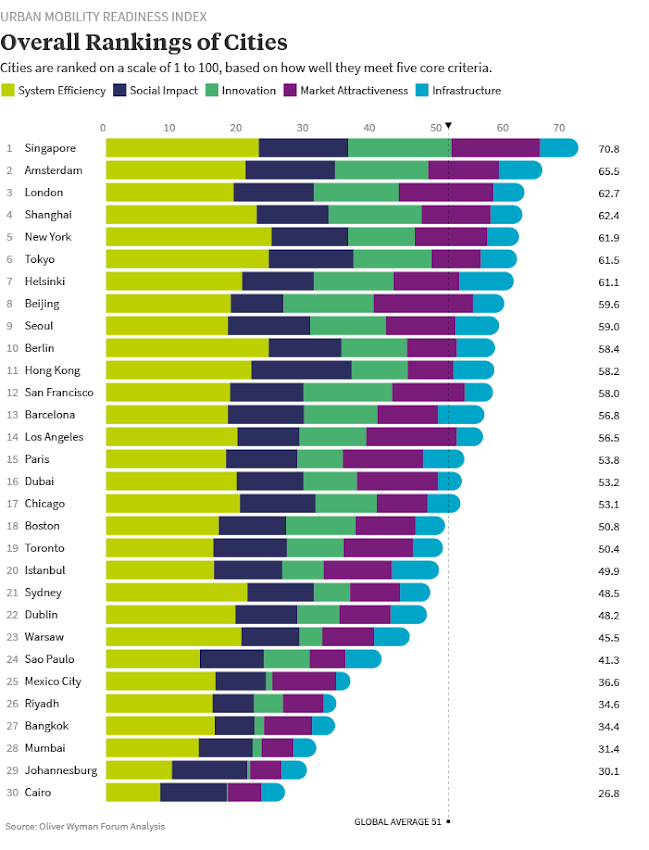
Singapore is leading the mobility revolution globally as it takes the cake in the first Urban Mobility Readiness Index: How Cities Rank on Mobility Ecosystem Development by Oliver Wyman Forum.
Over the past couple of years, we have seen a great deal of change in transportation, which encompasses logistics, car ownership, and sharing economy. The index ranked 30 cities on how prepared they are to incorporate the latest mobility technologies and what they are doing to reshape urban mobility.
The index analyses existing public and private mobility networks; current regulation, policy, and infrastructure; a city’s livability; and its capacity to absorb future technologies. While the index attempts to rank the outlooks for various cities, the research also provides best practices and concrete strategies that will allow cities to upgrade their offerings with a goal of transforming urban mobility from a challenge into a competitive economic advantage.
Singapore ranks number one in the index because it recognizes the importance of building ecosystems, private sector and research partnerships, and infrastructure investment. It has been a pioneer in reducing traffic congestion through various initiatives and has adopted an aggressive approach to integrating cutting-edge technology with progressive transportation policies. The region is leading the way in the latest mobility tools, platforms and services, as well as autonomous driving and real-time, digitized traffic management.

Meanwhile, Amsterdam, which is known for its robust infrastructure, extensive public transportation system, and efforts to downplay the automobile as a transport mode, has adopted adopted policies to foster electric and autonomous vehicles, increased the number of charging stations, and encouraged alternate modes of transportation, particularly bicycles. The city has attracted considerable private investment which is helping it with a large-scale smart city initiative as well as the development of a domestic mobility industry.
Overall, we can say that there is no one-size-fits-all solution when it comes to urban mobility because no two cities are the same. Solutions must be adapted to the specific problems, lifestyle, and culture of the people living in the city. For example, in Amsterdam, 60% of people get around by cycling or walking; while in Mexico City, 70% take mass transit.
The key to success for cities is a focus on the development of mobility ecosystems that provide a holistic framework to incorporate advanced technologies and create seamless, multimodal networks. Another pivotal element for cities is working closely with academic and private sector mobility research efforts and testing the latest technologies.



 share
share




















































